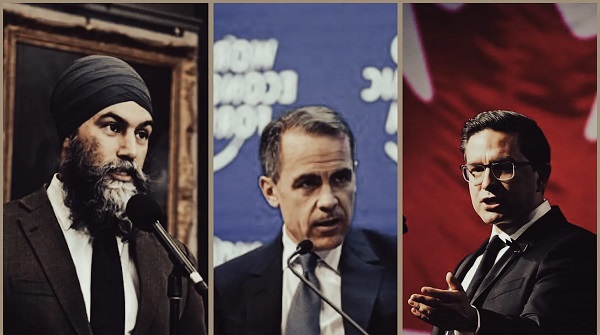International
OP-ED Trudeau’s Dangerous Pandering to Extremists Has Turned Canada Into a Safe Haven for Hate and Terror
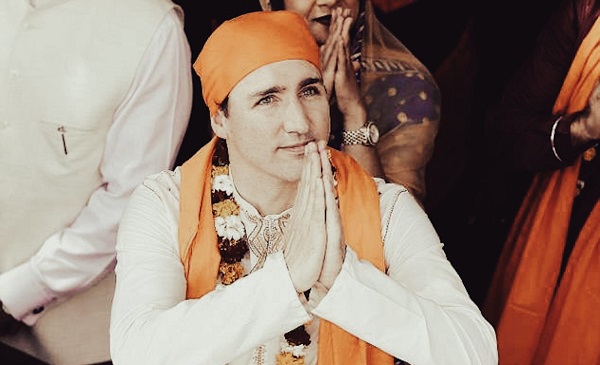
If these weren’t Khalistani activists but a group of white nationalists descending on a mosque or synagogue, Trudeau would be sprinting to the nearest camera to condemn it. Hate crimes would be filed faster than you could say “virtue signal.”
This past weekend in Brampton, Ontario, we saw a truly disturbing and shameful scene unfold. Khalistani extremists—yes, extremists—stormed a Hindu temple and reportedly assaulted its worshippers. For Hindus in Canada, who had come to this country seeking safety and freedom, this attack was a horrifying reminder that their places of worship, their cultural sanctuaries, are no longer safe. Such an assault on religious freedom should be universally condemned. Yet, the Canadian political establishment, led by Prime Minister Justin Trudeau and supported by NDP leader Jagmeet Singh, has done almost nothing but offer empty words and platitudes. It is increasingly clear that these incidents are not isolated—rather, they are a symptom of Trudeau’s reckless pandering to extremist factions within Canada’s diaspora communities.
As journalist Rupa Subramanya pointed out in her recent tweet, scenes like this should not be happening in a supposedly free and developed country like Canada. They’re scenes reminiscent of conflicts and vendettas one might see in parts of South Asia, not on the peaceful streets of Brampton. But thanks to Trudeau’s irresponsible courting of Khalistani separatist votes, this violence has been given fertile ground to grow right here in Canada.
Khalistani supporters argue they have a grievance with the Indian government. For years, they claim, India has targeted their community, cracking down on separatist leaders and activists with alleged ties to Khalistan here on Canadian soil. In the high-profile case of Hardeep Singh Nijjar, a prominent Khalistani figure in Surrey, the Trudeau government alleged that India was involved in his assassination. The RCMP, on Thanksgiving no less, all but confirmed that they believe Indian operatives were conducting activities on Canadian soil to target specific individuals. That’s a serious allegation—and it’s no surprise that it’s fueling the anger in certain parts of the Sikh community. I don’t dispute that these people have grievances, but grievances don’t justify terrorizing worshippers at a temple. There’s a clear line that’s been crossed.
Now, if this group wants to take a stand, they have every right to do so. Take your protest to the Indian consulate, gather on the steps of Vancouver’s art gallery, or march through the streets of Ottawa. That’s freedom of speech, and I’d defend their right to do it. But targeting a Hindu temple? That’s a desecration of a sacred space. What happened in Brampton wasn’t just a protest; it was an act of intimidation, even terror. And if we’re going to call a spade a spade, let’s use Canada’s own hate speech laws, which are weaponized regularly to police “wrongthink” in other cases. When violence and harassment are unleashed at a place of worship, it becomes a tool of terror—plain and simple. Even though I’m a staunch defender of free speech, we live under Canada’s hate speech regime, and it’s high time we see it applied evenly.
Here’s the kicker: if these weren’t Khalistani activists but a group of white nationalists descending on a mosque or synagogue, Trudeau would be sprinting to the nearest camera to condemn it. Hate crimes would be filed faster than you could say “virtue signal.” But in this case, we see silence and selective outrage from Canada’s so-called “defenders of diversity.” Why? Because Trudeau and Singh know they need the support of certain diasporas to maintain their coalition. They’re so tangled up in their own identity-politics web that they’ve rendered themselves incapable of taking a stand on principle.
The roots of this problem are Trudeau’s obsession with identity politics and his willingness to appease extremist voices within diaspora communities in exchange for votes. He’s aligned himself with Jagmeet Singh, whose support base includes those who sympathize with the Khalistani movement, and who has a long record of soft-pedaling the issue of Khalistani violence. For years, Trudeau and Singh have played a dangerous game, tacitly encouraging these factions to push the boundaries of what’s acceptable. Now, that same extremism has spilled into the open, right here in Canada.
Click to link to the National Post
In a National Post Article dated Nov 3 2024, Former Canadian cabinet minister Ujjal Dosanjh, a Sikh himself and a Canadian patriot who’s stood up to the radical fringes of his own community, is now sounding the alarm louder than ever about Justin Trudeau’s reckless pandering to Sikh extremism. Dosanjh is no fringe figure—he’s a former Liberal premier and a lifelong advocate for Canadian unity, even at great personal risk. He knows firsthand the damage that unchecked extremism can do to communities and to national stability. And now he’s pointing the finger directly at Trudeau.
According to Dosanjh, Trudeau’s obsession with catering to every vocal faction, no matter how extreme, has opened the floodgates for Khalistani separatists to operate openly within Canada. The same radicals who were emboldened by Canada’s political elites to support separatism are now terrorizing Hindu Canadians in their places of worship. For Dosanjh, the warning signs have been flashing red since the 1985 Air India bombing, which took the lives of 329 innocent people. But Trudeau, blinded by the need to appease every identity group, has allowed history to repeat itself.
Dosanjh argues that this “diversity at all costs” approach has led to the rise of an insidious form of intimidation that’s left peaceful Sikh Canadians too afraid to speak out against Khalistani extremism. Trudeau’s selective approach to multiculturalism—where every faction is catered to except the mainstream—has backfired spectacularly, leaving Canada vulnerable to the loudest, most radical voices. Most Sikhs in Canada don’t support the Khalistan movement, but Trudeau’s inaction has allowed this tiny, vocal minority to dominate the conversation and overshadow those who simply want to live in peace.
And Trudeau’s handling of the Hardeep Singh Nijjar affair? Dosanjh couldn’t be clearer: Trudeau’s approach was reckless and self-serving. Rather than addressing India’s concerns quietly, behind closed doors, Trudeau chose to escalate the issue on the global stage, causing a diplomatic disaster with one of Canada’s most important allies. In doing so, he’s not only jeopardized Canada-India relations but has risked the security of Canada’s Hindu, Sikh, and Indian diaspora communities. Why? Because Trudeau wanted to look “strong” to his own politically convenient voter base, using Canada’s House of Commons as his stage to grandstand.
And here’s the kicker. Dosanjh draws a stark comparison with the U.S., which recently dealt with a similar incident—an alleged plot against a Sikh separatist in American territory—through quiet diplomacy, respecting its allies without letting domestic politics interfere. Trudeau, on the other hand, saw an opportunity for grandstanding. Why? Because he knows identity politics is his only real play, and he’s willing to sacrifice both Canada’s unity and its global standing to keep his coalition intact.
Dosanjh doesn’t mince words: he sees Trudeau’s vision of Canada—a “post-national state” with no shared culture or common values—as an existential threat to the country’s future. Canada, Dosanjh argues, is not just a collection of identities; it’s a nation built on shared values, lawfulness, and mutual respect. But Trudeau, consumed by his obsession with catering to radical identity groups, is tearing the fabric of that unity apart. Instead of fostering a cohesive nation, Trudeau has allowed Canada to become a fragmented society, a breeding ground for extremism, and a place where national pride is quietly pushed aside for the benefit of loud, divisive voices.
So let’s stop pretending this is a question of free speech. What happened in Brampton was not about peaceful protest or political dissent; it was an act of hate and terrorism, plain and simple. Canada’s laws are clear, and so are the RCMP’s powers to act. Hate speech in Canada is legally defined as public incitement of hatred against any identifiable group—be it race, religion, or ethnicity—that can stir others to violence. What happened at the temple in Brampton goes beyond protest; it was targeted intimidation aimed at a religious community, nothing less than an assault on our nation’s values of tolerance and respect.
As for terrorism, Canada’s Criminal Code lays it out in black and white: any act that is politically or ideologically motivated and aimed at intimidating a public or religious group fits the bill. That’s exactly what these Khalistani extremists achieved by invading a temple, turning a space of worship into a site of fear. So let’s use the words Canada’s laws were built to define. This isn’t just disturbing the peace; it’s hate-fueled terror.
Here’s the blunt reality: the RCMP has the tools to stop this, to prosecute this violence, and to send a message that Canada will not stand by while extremists terrorize communities. And let’s not forget another essential tool—deportation. For any foreign nationals caught inciting or committing acts of violence, deportation is not only a right but a responsibility of any government worth its salt. Canada doesn’t need to tolerate foreign extremists on our soil; if they’ve come here to sow division, they need to be booted out and sent back. And if these radicals hold Canadian citizenship? Then we have prison cells ready for them. It doesn’t matter if they’re white, black, have blue hair, or green skin. If you break the law, if you cross that line from protest to violence, you belong behind bars, not on our streets.
Yet here we are with Trudeau at the helm, watching him bend over backward to avoid calling this violence out for what it is. He’s the same leader who preaches tolerance yet seems oddly selective about who deserves protection. If these were white nationalists outside a mosque or synagogue, Trudeau would be grandstanding in front of the nearest camera, denouncing it as terrorism—and he’d be right. So why the silence now? Is it because he’s too entangled in diaspora politics, relying on certain vote banks to keep his coalition intact? Or is it because he’s lost his nerve, fearful of offending the so-called “cultural sensitivities” of groups who’ve crossed the line?
The hypocrisy is staggering. Trudeau’s Canada is becoming a place where foreign grievances dictate the public peace and where divisive ideologies are allowed to take root. Pierre Poilievre and the Conservatives have a monumental task ahead. Trudeau’s game plan appears to be to break the system so badly that he can later point fingers and accuse the Conservatives of heartlessness when they try to fix it. But this is not heartlessness—it’s sanity. It’s common sense. It’s what any reasonable country would do to protect its people.
So let’s be absolutely clear: Canada is not short on people wanting to enter this country, to work hard, to respect its laws, and to build a future here. We don’t need to accommodate extremists or radicals. The way forward is simple: apply the laws we already have. Enforce our hate crime and anti-terrorism laws equally and unapologetically. If Trudeau won’t do it, then Canadians need a leader who will.
Canada needs to stand firm, prioritize its own values, and protect its citizens—not bow to the pressures of radicals who see our openness as weakness. If we want Canada to remain a place of peace, tolerance, and respect, we must enforce our laws without exception.
Subscribe to The Opposition with Dan Knight .
For the full experience, upgrade your subscription.
International
Nigeria, 3 other African countries are deadliest for Christians: report
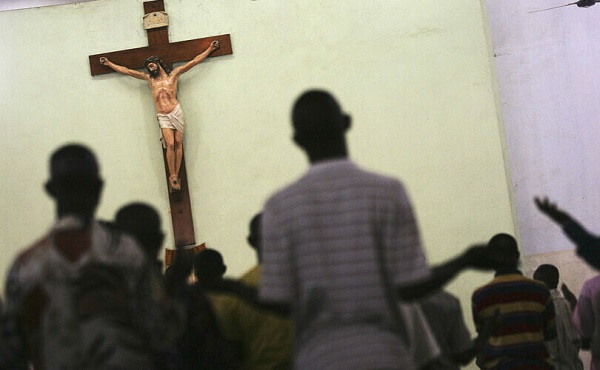
From LifeSiteNews
By Angeline Tan
The 2025 Global Christian Relief Red List report has found that the deadliest region for Christians is Africa, with Nigeria taking the top spot with 10,000 deaths in 2 years.
The 2025 Global Christian Relief (GCR) Red List report, which highlighted “the 25 worst countries for Christian persecution across five categories of concern” including killings, building attacks, arrests, displacements, abductions and assaults, has found that Africa, in particular Nigeria, is the most dangerous region for Christians.
Released in January, the GCR report, which relied on data from the Violent Incidents Database, a project founded by the International Institute for Religious Freedom (IIRF), summarized:
Africa remains the deadliest region for Christians, with Nigeria consistently being the most dangerous country for followers of Jesus. Between November 2022 and November 2024, nearly 10,000 Christians were killed, primarily by Islamic extremist groups such as Boko Haram, Armed Fulani Herdsmen, and the Islamic State’s West Africa Province (ISWAP). Similar patterns emerge in the Democratic Republic of the Congo (DRC), Mozambique, and Ethiopia, where numerous armed militant groups target Christians.
The GCR report detailed how “most of the killings” in Nigeria happened in the country’s northern “sharia” states, where Christians “often live in remote villages in semi-arid landscapes, making them particularly vulnerable to attacks.” Notably, the same report highlighted the failure of the Nigerian government in stopping these anti-Christian attacks, stating that “despite government assurances that they will defeat the extremists, the violence continues to escalate.”
Ranking second to Nigeria as the next “deadliest country for Christians” was the Democratic Republic of Congo (DRC), where “390 Christians were recorded as killed” during the reporting period of November 2022 to 2024. The GRC report singled out “Islamic militant groups like the Allied Democratic Forces” as the “main killers.”
Coming in third was Mozambique, with “262 recorded deaths.” The report declared that although Mozambique was “once a relatively peaceful Christian-majority country,” “a swarm of militants led by the Islamic State Mozambique (ISM)” has disrupted the peace of the country.
Strikingly, Ethiopia emerged as the fourth deadliest country for Christians, “with at least 181 Christians killed.” The GCR report detailed how “believers — particularly converts — faced high risks of violence in regions dominated by Islamic militants”.
Apart from killings, African Christians have to contend with the risk of displacements, assaults, and kidnappings.
“Despite the intense challenges in places like Nigeria, China, and India, we continue to see remarkable resilience in these communities,” Brian Orme, acting chief executive of Global Christian Relief, declared. “Even in the darkest circumstances, the Church not only survives but grows stronger — millions are choosing to follow Jesus despite knowing the risks they face.”
“Working closely with our partners on the ground in these high-risk areas, we provide emergency aid, safe houses, and trauma counseling to Christians facing violent persecution,” Orme said.
Regarding attacks on Christian property, India, a country noted for its controversial anti-conversion laws, ranked top on the list in the GCR report, with 4,949 incidents during the November 2022-2024 reporting period.
According to the report, “much of the violence occurred in Manipur, where unrest erupted in May 2024. Rioters, driven by Hindu extremists from the Meitei tribe, attacked predominantly Christian Kukis, systematically burning churches and setting fire to the homes of believers.”
Meanwhile, China led the world in arrests of Christians, with more than 1,500 believers detained under the communist government’s religious prohibitions. The report stated:
It is no surprise that China tops the 2025 GCR Red List for Arrests, given that the communist nation has the world’s most sophisticated surveillance mechanisms.
Business
Trump’s bizarre 51st state comments and implied support for Carney were simply a ploy to blow up trilateral trade pact
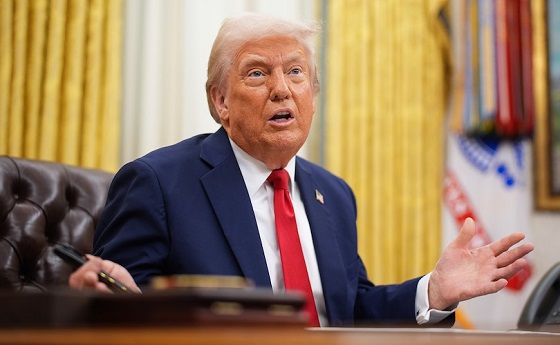
From LifeSiteNews
Trump’s position on the Canadian election outcome had nothing to do with geopolitical friendships and everything to do with America First economics.
Note from LifeSiteNews co-founder Steve Jalsevac: This article, disturbing as it is, appears to explain Trump’s bizarre threats to Canada and irrational support for Carney. We present it as a possible explanation for why Trump’s interference in the Canadian election seems to have played a large role in the Liberals’ exploitation of the Trump threat and their ultimate, unexpected success.
To understand President Trump’s position on Canada, you have to go back to the 2016 election and President Trump’s position on the North American Free Trade Agreement (NAFTA) renegotiation. If you did not follow the subsequent USMCA process, this might be the ah-ha moment you need to understand Trump’s strategy.
During the 2016 election President Trump repeatedly said he wanted to renegotiate NAFTA. Both Canada and Mexico were reluctant to open the trade agreement to revision, but ultimately President Trump had the authority and support from an election victory to do exactly that.
In order to understand the issue, you must remember President Trump, Commerce Secretary Wilbur Ross, and U.S. Trade Representative Robert Lighthizer each agreed that NAFTA was fraught with problems and was best addressed by scrapping it and creating two separate bilateral trade agreements. One between the U.S. and Mexico, and one between the U.S. and Canada.
In the decades that preceded the 2017 push to redo the trade pact, Canada had restructured their economy to: (1) align with progressive climate change; and (2) take advantage of the NAFTA loophole. The Canadian government did not want to reengage in a new trade agreement.
Canada has deindustrialized much of their manufacturing base to support the “environmental” aspirations of their progressive politicians. Instead, Canada became an importer of component goods where companies then assembled those imports into finished products to enter the U.S. market without tariffs. Working with Chinese manufacturing companies, Canada exploited the NAFTA loophole.
Justin Trudeau was strongly against renegotiating NAFTA, and stated he and Chrystia Freeland would not support reopening the trade agreement. President Trump didn’t care about the position of Canada and was going forward. Trudeau said he would not support it. Trump focused on the first bilateral trade agreement with Mexico.
When the U.S. and Mexico had agreed to terms of the new trade deal and 80 percent of the agreement was finished, representatives from the U.S. Chamber of Commerce informed Trudeau that his position was weak and if the U.S. and Mexico inked their deal, Canada would be shut out.
The U.S. Chamber of Commerce was upset because they were kept out of all the details of the agreement between the U.S. and Mexico. In actuality, the U.S. CoC was effectively blocked from any participation.
When they went to talk to the Canadians the CoC was warning them about what was likely to happen. NAFTA would end, the U.S. and Mexico would have a bilateral free trade agreement (FTA), and then Trump was likely to turn to Trudeau and say NAFTA is dead, now we need to negotiate a separate deal for U.S.-Canada.
Trudeau was told a direct bilateral trade agreement between the U.S. and Canada was the worst possible scenario for the Canadian government. Canada would lose access to the NAFTA loophole and Canada’s entire economy was no longer in a position to negotiate against the size of the U.S. Trump would win every demand.
Following the warning, Trudeau went to visit Nancy Pelosi to find out if Congress was likely to ratify a new bilateral trade agreement between the U.S. and Mexico. Pelosi warned Trudeau there was enough political support for the NAFTA elimination from both parties. Yes, the bilateral trade agreement was likely to find support.
Realizing what was about to happen, Prime Minister Trudeau and Chrystia Freeland quickly changed approach and began to request discussions and meetings with USTR Robert Lighthizer. Keep in mind more than 80 to 90 percent of the agreement was already done by the U.S. and Mexico teams. Both President Andres Manuel Lopez Obrador and President Trump were now openly talking about when it would be finalized and signed.
Nancy Pelosi stepped in to help Canada get back into the agreement by leveraging her Democrats. Trump agreed to let Canada engage, and Lighthizer agreed to hold discussions with Chrystia Freeland on a tri-lateral trade agreement that ultimately became the USMCA.
The key points to remember are: (1) Trump, Ross, and Lighthizer would prefer two separate bilateral trade agreements because the U.S. import/export dynamic was entirely different between Mexico and Canada. And because of the loophole issue, (2) a five-year review was put into the finished USMCA trade agreement. The USMCA was signed on November 30, 2018, and came into effect on July 1, 2020.
TIMELINE: The USMCA is now up for review (2025) and renegotiation in 2026!
This timeline is the key to understanding where President Donald Trump stands today. The review and renegotiation is his goal.
President Trump said openly he was going to renegotiate the USMCA, leveraging border security (Mexico) and reciprocity (Canada) within it.
Following the 2024 presidential election, Prime Minister Justin Trudeau traveled to Mar-a-Lago and said if President Trump was to make the Canadian government face reciprocal tariffs, open the USMCA trade agreements to force reciprocity, and/or balance economic relations on non-tariff issues, then Canada would collapse upon itself economically and cease to exist.
In essence, Canada cannot survive as a free and independent north American nation, without receiving all the one-way benefits from the U.S. economy.
To wit, President Trump then said that if Canada cannot survive in a balanced rules environment, including putting together their own military and defenses (which it cannot), then Canada should become the 51st U.S. state. It was following this meeting that President Trump started emphasizing this point and shocking everyone in the process.
However, what everyone missed was the strategy Trump began outlining when contrast against the USMCA review and renegotiation window.
Again, Trump doesn’t like the tri-lateral trade agreement. President Trump would rather have two separate bilateral agreements; one for Mexico and one for Canada. Multilateral trade agreements are difficult to manage and police.
How was President Trump going to get Canada to (a) willingly exit the USMCA; and (b) enter a bilateral trade agreement?
The answer was through trade and tariff provocations, while simultaneously hitting Canada with the shock and awe aspect of the 51st state.
The Canadian government and the Canadian people fell for it hook, line, and sinker.
Trump’s position on the Canadian election outcome had nothing to do with geopolitical friendships and everything to do with America First economics. When asked about the election in Canada, President Trump said, “I don’t care. I think it’s easier to deal, actually, with a liberal and maybe they’re going to win, but I don’t really care.”
By voting emotionally, the Canadian electorate have fallen into President Trump’s USMCA exit trap. Prime Minister Mark Carney will make the exit much easier. Carney now becomes the target of increased punitive coercion until such a time as the USMCA review is begun, and Canada is forced to a position of renegotiation.
Trump never wanted Canada as a 51st state.
Trump always wanted a U.S.-Canada bilateral trade agreement.
Mark Carney said the era of U.S.-Canadian economic ties “are officially declared severed.”
Canada has willingly exited the USMCA trade agreement at the perfect time for President Trump.
-

 Alberta1 day ago
Alberta1 day agoIt’s On! Alberta Challenging Liberals Unconstitutional and Destructive Net-Zero Legislation
-
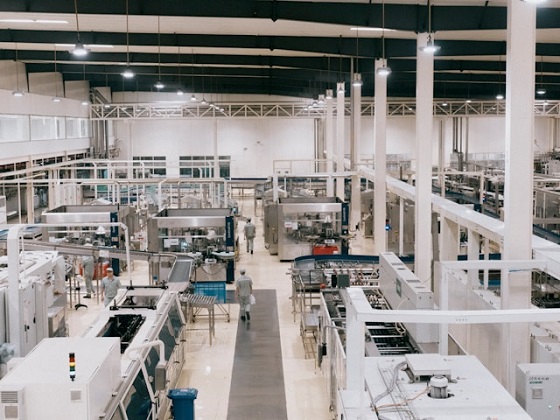
 Business2 days ago
Business2 days agoChina’s economy takes a hit as factories experience sharp decline in orders following Trump tariffs
-

 Business2 days ago
Business2 days agoTrump’s bizarre 51st state comments and implied support for Carney were simply a ploy to blow up trilateral trade pact
-
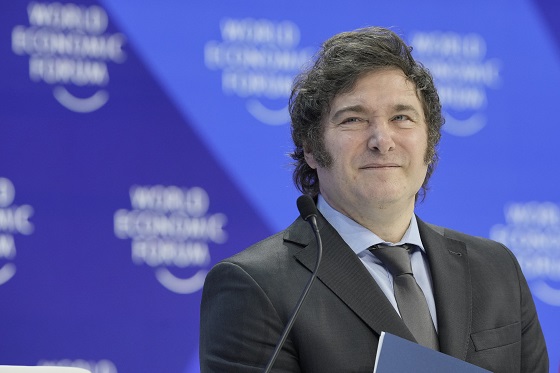
 International2 days ago
International2 days agoJavier Millei declassifies 1850+ files on Nazi leaders in Argentina
-
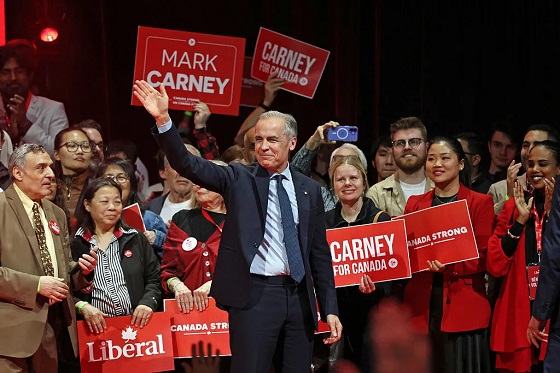
 Alberta1 day ago
Alberta1 day agoAlberta’s future in Canada depends on Carney’s greatest fear: Trump or Climate Change
-
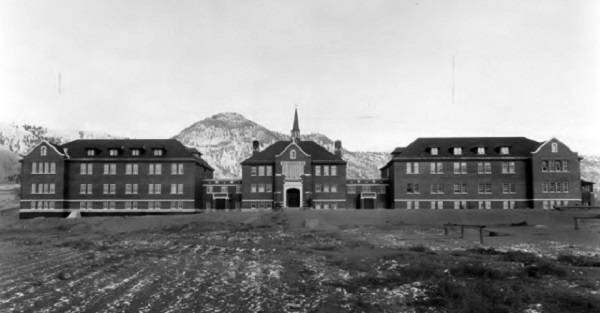
 Frontier Centre for Public Policy2 days ago
Frontier Centre for Public Policy2 days agoTrust but verify: Why COVID-19 And Kamloops Claims Demand Scientific Scrutiny
-

 COVID-192 days ago
COVID-192 days agoStudy finds Pfizer COVID vaccine poses 37% greater mortality risk than Moderna
-
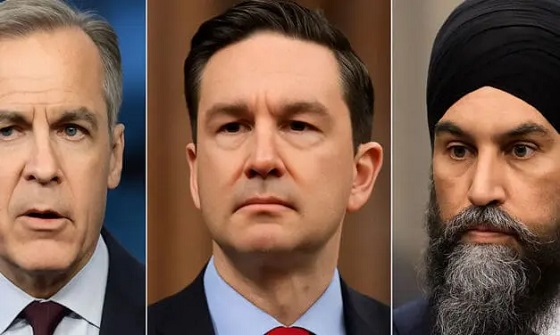
 2025 Federal Election15 hours ago
2025 Federal Election15 hours agoThe Liberals torched their own agenda just to cling to power






